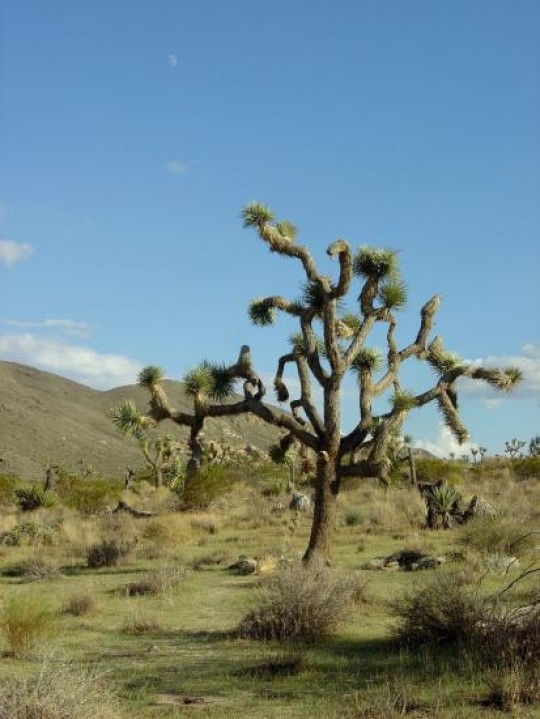Species management: The conference
Species management: The conference
Dov Sax, of Brown’s Department of Ecology and Evolutionary Biology, and Bernd Blossey, professor of natural resources at Cornell University, have organized a conference for the Ecological Society of America next week in West Virginia. Among the topics: What to do when climate change forces species out of their historical habitats.
Imagine that a century from now, Joshua Tree National Park would no longer have Joshua trees or that Sequoia National Forest would be devoid of its signature ancient, majestic trees. Farfetched? Not really. A growing number of scientists believe the climate is changing so rapidly, abetted by human-caused warming, that species, iconic and less significant, will need to move from places they currently call home.
 Joshua tree
Joshua tree
Hospitable growing regions may move elsewhere because of climate change, leaving ancient trees and other lifeforms without a home./Credit: Wikipedia Commons
Understanding how climate change will reshape the competitive landscape for wildlife and drive species to seek out new territory — all the while shaking up the status quo in ecosystems — are among the subjects the Ecological Society of America will tackle at its emerging issues conference, “Developing Ecologically-Based Conservation Targets Under Global Change.” Some 80 scientists, policymakers and resource managers are expected to attend the gathering, which runs from Feb. 27 to March 1, 2012, in Shepherdstown, W.Va.
“We know we’re in the midst of a paradigm shift” for species caused by rapid changes in the climate, said Dov Sax, assistant professor of biology in the Department of Ecology and Evolutionary Biology at Brown University and the conference’s co-organizer. “We know where we’re coming from and where we are now. But where do we go? We need to have that conversation about not only how do we protect things, but what do we want.”
“The goal is to ask questions what our conservation targets and goals should be,” he added. “No large group has had this conversation yet.”
Sax and the meeting’s other organizer, Bernd Blossey, professor of natural resources at Cornell University, have been planning the meeting for two years. In that time, there is growing recognition in conservation circles that protected areas, from national parks to marine preserves, may not be enough to ensure species’ survival against accelerated changes to the climate.
Sax calls thinking around natural reserves a “fortress mentality.” It has served species and humans well, he said, but it needs to change to reflect the rapid pace of climate change. “We all know the world is dynamic, but we assumed that it was static enough that we could have protected areas that we could put a fence around,” he explained. “And if you put a fence around it and left it alone, everything would be fine. That is no longer the case.”
The organizers hope to agree on some initial steps, from science to policy, that could guide species and ecosystem management decisions. “You keep having these tensions and tradeoffs,” Sax said. “What’s the right balance?”
###
* The above story is adapted from materials provided by Brown University
** More information at Brown University (Providence, Rhode Island, USA)
______________________________________________________________




















